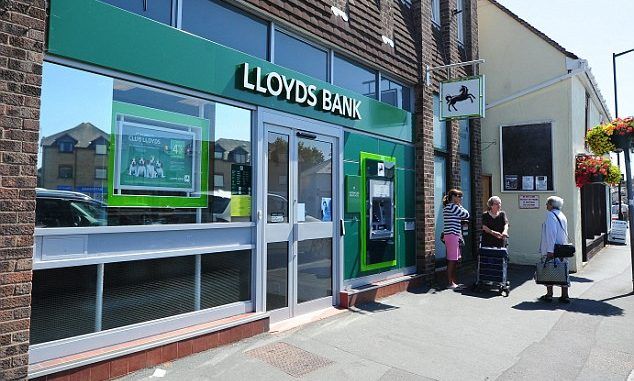
Court backs customer over hefty overdraft fees.
‘A landmark court victory against Lloyds Bank over unfair overdraft charges could open the floodgates for a billion-pound payout to customers, reports the Mail Online
A judge at Taunton County Court ruled that the bank was wrong to hit Oliver Foster-Burnell’s bank account with hefty rising fees that drove him ever deeper into debt.

BYPASS THE CENSORS
Sign up to get unfiltered news delivered straight to your inbox.
You can unsubscribe any time. By subscribing you agree to our Terms of Use
Penalties totalling more than £700 made it impossible for the 28-year-old public health sector worker to pay other bills – and triggered a spiral of debt that paralysed his finances.
Only after the loyal Lloyds customer hired a debt management company did the bank stop imposing charges of up to £20 a day. In his ruling, Deputy District Judge Stockdale said the bank’s terms and conditions caused a ‘significant imbalance … to the detriment’ of Mr Foster-Burnell. He ordered the bank to reimburse £743 in charges plus interest.
It was the first known legal victory for a customer on the fairness of charges since banks won a hearing over the legality of the fees in the Supreme Court five years ago. That ruling, on a technicality, dashed the hopes of millions trying to claim fee refunds. In the run-up to the 2009 case, bank customers, led by Money Mail’s Fair Play on Charges campaign, reclaimed millions of pounds.
But the Supreme Court decision meant customers could no longer challenge their bank.
Outraged at how severely the penalties pushed him into debt, Mr Foster-Burnell learned of a recent European Court of Justice ruling. This says that any charges increased within an agreement must be clearly explained, including an explanation of how they were worked out. With help from solicitor Howlett Clarke, Mr Foster-Burnell showed how individual clauses within Lloyds’ terms and conditions failed to do this. The judge at Taunton County Court in Somerset agreed. But, critically, Judge Stockwell said the judgment applied only to the claimant.
Mr Foster-Burnell appealed against this part of the ruling. Last week, he went back to court to ask it to rule that the Lloyds clauses relating to account charges are themselves unfair – not just in relation to his case. If the court agrees, it would apply to all bank customers, leaving banks open to huge payouts.
Mr Foster-Burnell, 28, from Taunton, said: ‘It is unfair the banking industry is allowed to profit while people suffer financial hardship. By applying these charges, and allowing them to snowball out of control, it skews the imbalance.
‘We want the court to consider that such a system of charges can hit anyone badly – not just those in hardship – and is therefore unfair, and needs to be changed.’
A ruling is not expected until later this year. Until then, the county court ruling is not a legal precedent. However, judges can use it for guidance.
Marc Gander, founder of the Consumer Action Group, hailed the judgment as a boost for consumers. ‘These extortionate charges are hugely unfair and it is absurd that the present law merely says courts must turn a blind eye to this issue,’ he said.
‘It’s about time bank customers got the fair treatment that they are entitled to by law.’
Martin Lewis, founder of the Moneysavingexpert website, called Mr Foster-Burnell a pioneer. ‘It’s up to the court to decide if such a term can be unfair to all – regardless of whether they’re struggling in financial hardship,’ he said. ‘Potentially, we’re talking billions of pound.’
Money Mail first sounded the alarm on charges in 2005 when some banks began to raise fees for unauthorised overdrafts.
The Fair Play on Charges campaign created a template letter for customers to help them reclaim the penalty fees. By July 2007, more than £800million had been paid out by banks and the OFT stepped in to try to resolve the situation for all customers.
Although it scored early victories, the Supreme Court eventually ruled that the fees were part of a bank’s ‘core costs’ of providing a current account – and, on a technicality, couldn’t be assessed under rules on fairness.
A spokesman for Lloyds Banking Group said: ‘We do not discuss individual customer cases and any decision will be specific to its facts. However, the legal issues relating to bank charges were dealt with comprehensively and conclusively by the judgment of the Supreme Court.’



